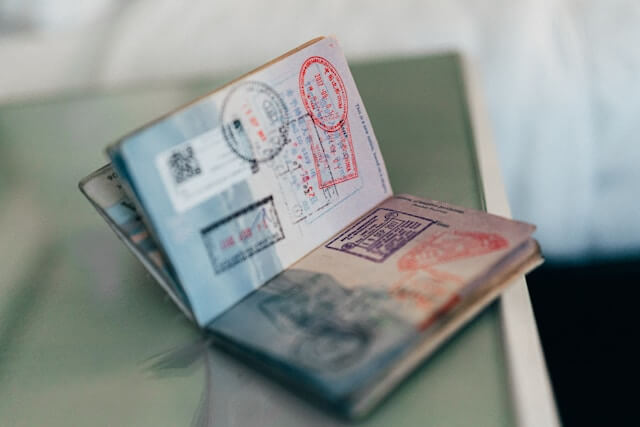Traveling, whether for vacation, studies, or work is a thrilling prospect, but visa application processes can be daunting and discouraging. Without paying attention to details, you could make some visa application mistakes that could lead to your visa being denied.
Whether you’re planning a leisurely vacation, a business trip, or a long-term relocation, this article discusses terrible visa application mistakes you must avoid.
The Top 7 Visa Application Mistakes You Must Avoid
The chances of your visa application being accepted are high if you can avoid the following mistakes:
1. Submitting an Incomplete or Incorrect Application Form
One of the most common mistakes people make when applying for a visa is submitting an incorrect application form. The success or failure of your visa application begins here, therefore you must submit a complete and accurate application form.
An incomplete or incorrect visa application form could lead to a delay in processing your application or even outright rejection.
Therefore, you must pay attention to details when filling out visa application forms. Make sure to read every detail. If there’s any section you don’t understand, call the embassy in charge to ask questions.
2. Providing Fake Documents
You can’t fake your way into getting a visa. Not even when it has to do with the US, Canada, or any top country with stringent visa rules. Most countries make sure to verify all important documents you provided while submitting your visa application. They can call your employers, and reach out to your banks and academic institutions to verify the authenticity of your documents.
These countries are always meticulous with visa processing and any sight of a fake document could have severe consequences. Besides outrightly rejecting your visa application, some countries will go as far as taking legal action against you. This could damage your reputation and cause you problems when applying for a visa to other countries in the future.
Canada for example will not only reject your permanent residency application but will ban you from applying for a couple of years or forever.
Also Read: 10 Degrees that Can Easily Land You a High-Paying Job Abroad
3. Insufficient Financial proof
Proof of funds is important to most countries, as they want to be sure you can handle your travel needs. No country wants to see immigrants stranded on their streets without any sense of direction or hope for assistance.
Therefore, you must prove that you have enough funds to take care of all your needs in your travel destination. To most countries though, it’s not just about having the lump sum in your account. they want to see through your transactions over time. They do this to ensure that your income is consistent with your inflows and outflows over that period.
An insufficient fund is enough grounds for the rejection of your visa application. They do this because they assume you’re not financially able to cover the costs of your travel.
4. Applying with a Passport that has Less than 6 Months Validity
This might seem trivial but it’s a major ground for visa rejection, especially for countries like the US, Canada, etc.
Applying for a visa with a passport that has less than 6 months of validity means it might expire while you’re still in the country you traveled to. This is a major problem, as it means you’d have difficulties returning to your country.
Therefore, you must avoid applying for a visa with an expired passport or the one that’s about to expire. The ideal thing is to renew it before applying, even if it means postponing your trip.
5. False Information about Your Travel History
Being dishonest about your travel history is another mistake you must avoid when making visa applications. People make this mistake thinking it would go unnoticed, especially on the part where their visa was denied.
Most embassies put extra effort into verifying this information, as they’d want to know if you had visa rejections in the past and why.
Therefore, you mustn’t lie about your travel history, as it could lead to outright rejection of your application. One thing you must know is that, if you’re honest about your travel history, these embassies might still consider your application based on your current situation.
6. Applying too Late or too Close to Your Travel Dates
Even if you meet the requirements for a visa, they reserve the right to reject your application because you applied too late or too close to your travel date. Most embassies require you to apply at least two months before your travel date to ease the processing.
Therefore, if you’re looking to be in a country by say July, you should make sure to send in your application by May latest. This gives the embassy time to process your application and if there’s any delay, they can resolve it before your planned travel date.
7. Relying on Travel Agents to Get You a Visa
While it’s advisable to make your visa applications yourself, travel agents can also provide helpful assistance. However, don’t make the mistake of relying on them for your visa, as they can only do so much.
Even if they’re to help you make the visa application, ensure you understand the entire process. Also, make sure that they used the correct information you provided. This will become useful during your interview, as most embassies will reject your application if they find out you couldn’t even spare time to make the application yourself.
Also Read: 5 Best Countries to Study Abroad and Why
Conclusion
It’s painful when people realize their visas could have been granted if not because of some avoidable mistakes in their applications. It might be because of something as trivial as applying with a soon-to-expire passport or applying too close to their travel dates. Likewise, it might be because of something as serious as applying with fake documents, providing incomplete information, or having insufficient funds in your bank account.
Avoiding making the mistakes listed in this article will improve the chances of having your visa approved.















